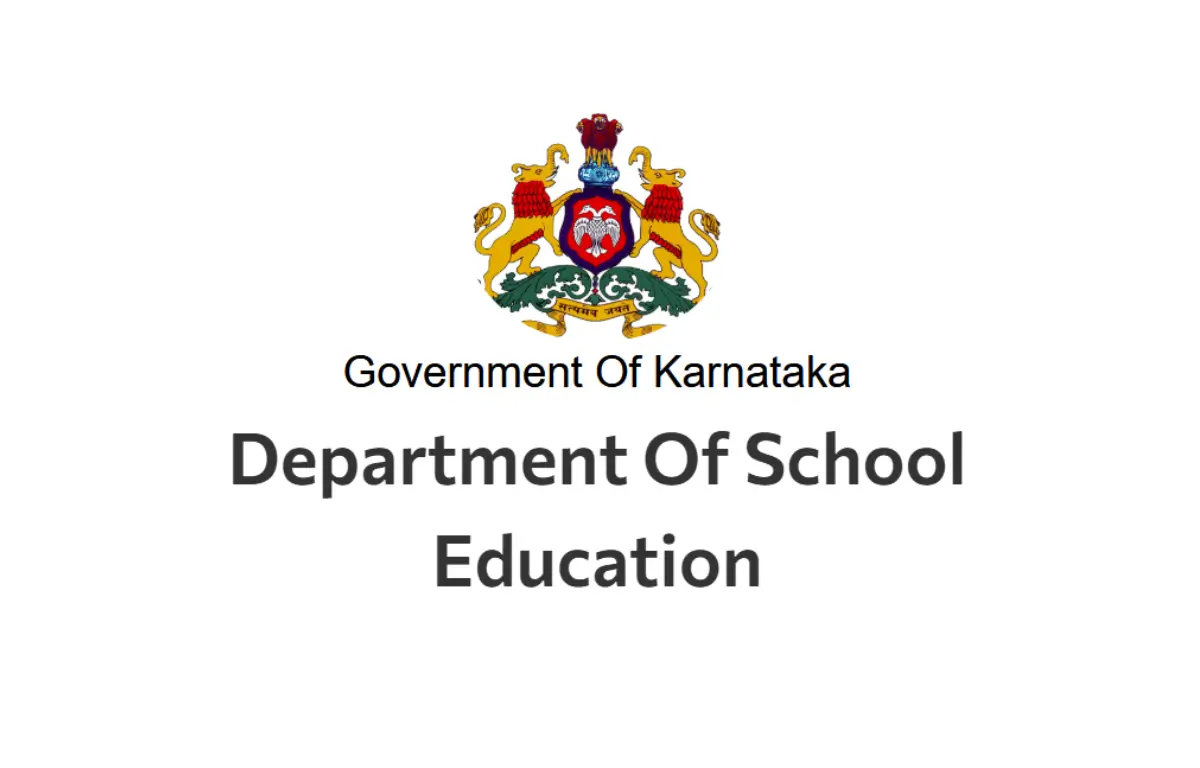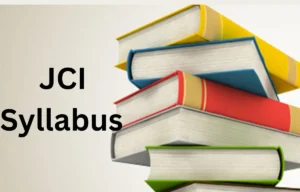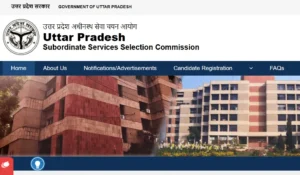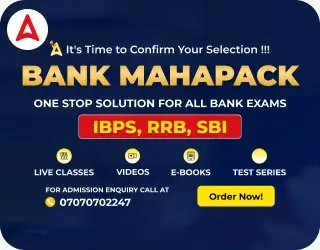Every year Education Department of Karnataka conducts the Karnataka Teacher Eligibility Test to select candidates to be appointed as Teachers in the various schools in Karnataka. The Karnataka TET (KARTET) has two papers, one for classes 1 to 5 and another for classes 6 to 9. Candidates who are going to appear for the eligibility test must go through the updated syllabus and exam pattern.
KARTET Syllabus and Exam Pattern 2026
The questions in the KARTET exam are asked from various subjects, including Child Development and Teaching Methodology, Language, Mathematics, and Environmental Studies. Candidates preparing for the state-level examination must get an overview of the exam syllabus, exam pattern, and marking scheme.
| KARTET Syllabus 2026- Highlights | |
| Organization | Education Department of Karnataka |
| Exam Name | Karnataka TET Exam 2026 (KARTET 2026) |
| Exam Level | National Level |
| Mode of Exam | Offline |
| Type of Questions | Objective Type |
| Total Question | 150 (for each paper) |
| Total Marks | 150 (for each paper) |
| Negative Marking | No |
KARTET Exam Pattern 2026
The Karnataka TET examination will include two papers- Paper 1 and Paper 2. The first paper will be conducted for candidates who want to be appointed as government teachers for classes 1 to 5, and the second paper for the teachers of classes 6 to 8. The exam pattern for both papers has been provided in brief below.
KARTET Exam Pattern for Paper I (for Classes 1 to 5)
Paper 1 of the KARTET examination is to be conducted for a total of 150 marks, including multiple-choice questions and it is divided into 5 parts with 150 MCQs for 1 mark each. The duration of the Karnataka TET Exam is 2 hours 30 minutes (120 minutes) and it will be will be English & Hindi. The examination will be conducted offline (pen-paper mode) with no negative marking.
| Subjects |
Questions
|
Marks
|
|---|---|---|
|
Child Development and Teaching Methodology (Compulsory)
|
30
|
30
|
|
Language I (compulsory)
|
30
|
30
|
|
Language II (compulsory)
|
30
|
30
|
|
Mathematics
|
30
|
30
|
|
Environmental Studies
|
30
|
30
|
| Social studies (Only for blind students instead of Maths & EVS) |
60
|
60
|
|
Total
|
150
|
150
|
KARTET Exam Pattern for Paper 2 (for Classes 6 to 8)
Karnataka TET Paper 2 includes a total of 150 marks and consists of 150 multiple-choice questions (MCQs). Each question carries one mark in the teacher-eligibility test. There is no negative marking for wrong answers in the KARTET exam. The time duration paper 2 exam will be 120 minutes.
|
Subjects
|
Questions
|
Marks |
| Child Development and Teaching Methodology (Compulsory) |
30
|
30
|
|
Language I (compulsory)
|
30
|
30
|
|
Language II (compulsory)
|
30
|
30
|
| Mathematics and Science (for maths & science teacher) |
60
|
60
|
|
Social Studies Lessons | Social Science (for Social Science Teachers
|
60
|
60
|
|
Total
|
150
|
150
|
Karnataka TET Syllabus 2026
Candidates preparing for either Karnataka TET paper I or paper II must be aware of the subject-wise syllabus that needs to be covered by them. The candidates need to focus on the important topics carrying more weightage to obtain a higher score in the examination. Here, we have provided the subject-wise syllabus for both papers in detail.
KARTET Paper 1 Syllabus 2026
The KARTET paper 1 syllabus is divided into 5 parts: child development and pedagogy, mathematics, environmental studies, and language I & II. Social studies has been included for for visually impaired candidates instead of mathematics and environmental studies (EVS). This paper is targeted at those who wish to teach younger learners (approximate age group 6–11 yrs). The sections are designed to test both foundational subject knowledge and pedagogical awareness.
Child Development and Pedagogy Syllabus
- Child development: Concept of development and its relationship with learning, Principles of the development of children, Influence of Heredity & Environment.
- Socialization processes: Social world & children (Teacher, Parents, Peers)
- Concepts of child-centered and progressive education: Piaget, Kohlberg and Vygotsky, constructs and critical perspectives., Critical perspective of the construct of Intelligence, Multi-Dimensional Intelligence, Language & Thought.
- Gender as a social construct: gender roles, gender – bias and educational practice, Individual differences among learners, understanding differences based on diversity of language, caste, gender, community, religion, etc.,
- The distinction between Assessment for learning and assessment of learning: School-Based Assessment, Continuous & Comprehensive Evaluation., perspective and practice, Formulating appropriate questions for assessing readiness levels of learners, for enhancing learning and critical thinking in the classroom, and for assessing learner achievement.
- Concept of Inclusive education and understanding children with special needs: Addressing learners from diverse backgrounds including disadvantaged and deprived Addressing the needs of children with learning difficulties, ‘impairment’ etc., addressing the Talented, Creative, Specially abled Learners
- Learning and Pedagogy: How children think and learn; how and why children ‘fail’ to achieve success in school performance.
- Basic processes of teaching and learning: children’s strategies of learning, learning as a social activity and social context of learning, Child as a problem solver and a ‘scientific investigator’.
- Alternative conceptions of learning in children: understanding children’s ‘errors’ as significant steps in the learning process. Cognition & Emotions, Motivation, and learning, Factors contributing to learning – personal & environmental.
Language I (compulsory) Syllabus
- Language Comprehension Reading unseen passages – Answering the question based on the given unseen passage. (Prose, Drama, or Poetry)
- Pedagogy of Language Development: Learning and Acquisition, Principles of Language Teaching, Role of listening and speaking, the function of language and how children use it as a tool. A critical perspective on the role of grammar in learning a language for communicating ideas verbally and in written form. Challenges of teaching language in a diverse classroom and Language Skills.
- Teaching-learning materials: Textbook, multi-media materials, multilingual resource of the classroom, Remedial Teaching.
Language II (compulsory) Syllabus
- Language Comprehension Reading unseen passages – Answering the question based on the given unseen passage. (Prose, Drama, or Poetry.)
- Pedagogy of Language Development: Learning and Acquisition, Principles of Language Teaching, Role of listening and speaking, the function of language and how children use it as a tool. A critical perspective on the role of grammar in learning a language for communicating ideas verbally and in written form. Challenges of teaching language in a diverse classroom and Language Skills.
- Teaching-learning materials: Textbook, multi-media materials, multilingual resource of the classroom, Remedial Teaching.
Mathematics Syllabus
- Geometrical figures & the knowledge of space
- 3 – D Geometrical figures
- Numbers
- Fractions
- Mathematical operations on numbers and algebraic expressions
- Measurements – Weight, time, and volume
- Data Handling & Measures of central tendency
- Ratio and proportion
- Mathematics in daily life
- Lines & angles
- Polygons
- Basic algebra – Linear equations & Identities
Environmental Studies Syllabus
- Our Environment: Major components of the environment, types of ecosystem, life diversity and its features, food chain, and nature balancing factors, Food web, ecological Pyramids, Plant and animal species, factors of Biodensity, Tropic levels, Types of pollution, reasons – effects – remedial measures, greenhouse effect, greenhouse gasses, sustainable development and its maintenance, waste management measures. Environment movements (Related to state and national level), Important Environment activists, state and national award-winning literature, and writers related to the environment, major environmental phenomena, and types of ecological conservation.
- Living world: Life processes, classification of organisms. How do organisms reproduce? Cell, Tissues, Organs, and organs system.
- Sources of Energy: Solar Energy, Wind Energy, Tidal Energy, Geothermal Energy, Biodegradable wastes, non-biodegradable wastes, and Chemicals in our daily life.
- Human Health and Hygiene: Carbohydrates: Types of Monomers, lipids, proteins, Vitamins, Minerals, Deficiencies.
- Natural Phenomena: Motion, Force, Gravitation, Newton’s laws of motion, distance-speed graphs.
- How do things work: Electricity: Definitions of important terminologies, SI units, Numerical.
Social studies Syllabus For visually impaired candidates instead of mathematics and EVS
- History: When, Where and How, The Earliest Societies, The First Cities, Early States, New Ideas, The First Empire, Contacts with Distant lands, Political Developments, Culture and Science, New Kings and Kingdoms, Sultans of Delhi, Architecture, Creation of an Empire, Social Change, Regional Cultures, The Establishment of Company Power, Rural Life and Society, Colonialism and Tribal Societies, The Revolt of 1857 – 58, Women and reform, Challenging the Caste System, The Nationalist Movement, India After independence.
- Geography: Geography as a social study and as a science, Planet – Earth in the solar system, Globe, Environment in its totality: natural and human environment, Air, Water, Human-Environment – settlement, transport and communication, Resources – Types – Natural and Human, Agriculture.
- Social and Political Life: Diversity, Government, Local Government, Making a Living, Democracy, State Government, Understanding Media, Unpacking Gender, The Constitution, Parliamentary Government, The Judiciary, Social Justice and the Marginalized. Pedagogical issues: Concept & Nature of Social Science/Social Studies, Class Room Processes, activities, and Discourse, Developing Critical Thinking, Enquiry/Empirical Evidence, Problems of Teaching Social Science/Social Studies, Sources – Primary & Secondary, Project Work, Evaluation.
KARTET Paper 2 Syllabus 2026
This paper is designed for candidates aiming to teach upper-primary learners (approximate age group 11–14 yrs). While the structure remains similar in terms of sections, the content depth increases and the specialised subject component has a larger weightage.
| Subject | Topics |
|
Child Development and Pedagogy
|
|
|
Language I (compulsory)
|
|
|
Language II (compulsory)
|
|
|
Subject Concerned (Mathematics & Science Or Social Studies)
|
Mathematics
Science Physics
Chemistry
Biology
|
KARTET Syllabus 2026 PDF
The Education Department of Karnataka has released the syllabus for the KARTET 2026 Exam on its official website. Candidates can download the detailed PDF from the link shared below. Go through the Karnataka TET Syllabus 2026 and plan preparation for the KARTET examination. The syllabus gives a clear idea about the exam pattern, subject-wise marks distribution, and the topics to focus on.
Minimum Qualifying Marks in KARTET Exam
To crack the Karnataka TET exam you have to score more than the minimum qualifying marks. The minimum qualifying marks for the unreserved category is 60% of the total marks i.e. 90 marks. The following table can be checked to know minimum qualifying marks for all categories.
| Category | Qualifying percentage | Qualifying marks |
| General | 60% | 90 |
| SC/ST/OBC | 55% | 82.5 |
| PH and Visually impaired candidates | 55% | 82.5 |



 Central Bank of India SO Syllabus 2026 a...
Central Bank of India SO Syllabus 2026 a...
 JCI Syllabus 2026 for Junior Assistant, ...
JCI Syllabus 2026 for Junior Assistant, ...
 UPSSSC JE Syllabus and Exam Pattern 2026...
UPSSSC JE Syllabus and Exam Pattern 2026...







